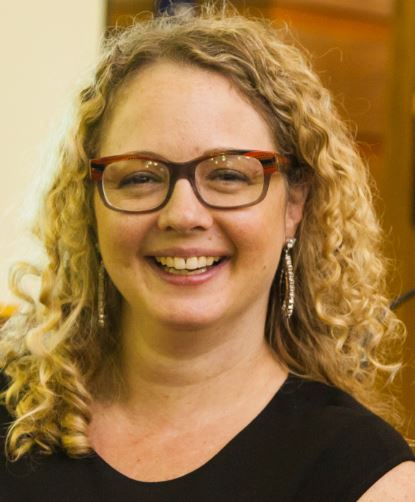“The most urgent, the most disgraceful, the most shameful and the most tragic problem is silence.” These words were spoken by Rabbi Joachim Prinz, one of two Jews to speak at the March on Washington in 1963 alongside the Reverend Martin Luther King, Jr. Rabbi Prinz knew of which he spoke, having served the Jewish community of Berlin under the Hitler regime.
The problem of silence is something the Jewish tradition has been aware of from its early beginnings. Parashat Mattot concerns itself with the taking of vows, nedarim. For our purposes, let’s uncover what the Torah has to say of a young woman who takes a vow: “If a woman makes a vow to Adonai or assumes an obligation while still in her father’s household by reason of her youth, and her father learns of her vow or her self-imposed obligation and offers no objection, all her vows shall stand and every self-imposed obligation shall stand.” (Numbers 30:4-5) The Hebrew here translated as “offers no objection” is hecherish—which can also be understood as silent, or kept quiet. In other words, by remaining silent, the father agrees to the vow. Silence implies consent.
Our tradition continues to consider this trope in a well-known teaching taken from the Babylonian Talmud, Shabbat 54b: Rav, Rabbi Hanina, Rabbi Yohanan and Rabbi Habiba taught: Whoever can protest against his household but does not is held responsible for the sins of his household; if he can protest against the people of his town but does not, he is held responsible for their sins; if he can protest against the sins of the whole world but does not, he is held responsible for the sins of the whole world.
I would argue that this teaching takes things even further. Silence now not only implies consent, but creates accountability for the one who remains quiet.
Where are we silent? For what must we be held accountable?
A story: Earlier this year, at a gathering of Jewish leaders, a woman and I got to speaking. She had heard one of our keynotes use the word occupation to refer to the situation in the Palestinian territories. She was surprised, believing that the word ‘occupation’ is somehow outdated, not quite the right description for the situation in Israel and Palestine. She was wondering whether other Jewish leaders would use such a term. I assured her that they would, as do I. The conversation eventually moved on to other topics, but her question pierced me. Although not her purpose, in that moment, I felt accountable and responsible. What have I done to create a situation in which our fellow Jews aren’t aware of the terrible occupied conditions that the majority of Palestinians live under? Why have we allowed the narrative of the collapse of the Oslo process to create a bubble of perception among American Jews that, somehow, the occupation has ended? Yes, peace efforts were made; yes, Israel pulled out of Gaza. But the overall occupation has remained. And I have been far too silent about this. Perhaps you too have been far too silent.
And yet, I am beginning to sense a change. Whether you think of the letter T’ruah sent recently to Israeli Prime Minster Benjamin Netanyahu on the 50th anniversary of the Israeli occupation, or the publication of Kingdom of Olives and Ash: Writers Confront the Occupation, the increasing visibility of groups like Breaking the Silence among the American Jewish community (and T’ruah’s “Go and See” partnership with them to bring Jewish groups to the West Bank for study days), or the film Disturbing the Peace, something new is afoot. We must continue to strengthen our hand and raise our collective voices against the occupation that infects the soul of Israel and her soldiers, and wounds and oppresses too many Palestinian lives.
Isaac ben Moses Arama, a 16th century Spanish commentator, wrote: “When an entire group, or society commonly commits a transgression…it is absolutely essential to mount a public protest, even if no one [in power] listens, but at least one does not allow a mitzvah of the Torah to be totally disregarded….” We must no longer allow the mitzvot of b’tzelem Elohim and tzedek, tzedek tirdof to be trampled on.
***
Is your community planning a trip to Israel? Let T’ruah help you incorporate a day of learning in the West Bank.
Rabbi Esther Lederman works for the Union for Reform Judaism and is on the board of T’ruah.


